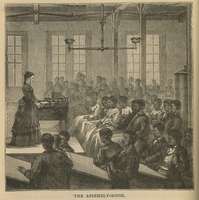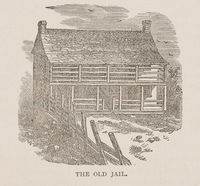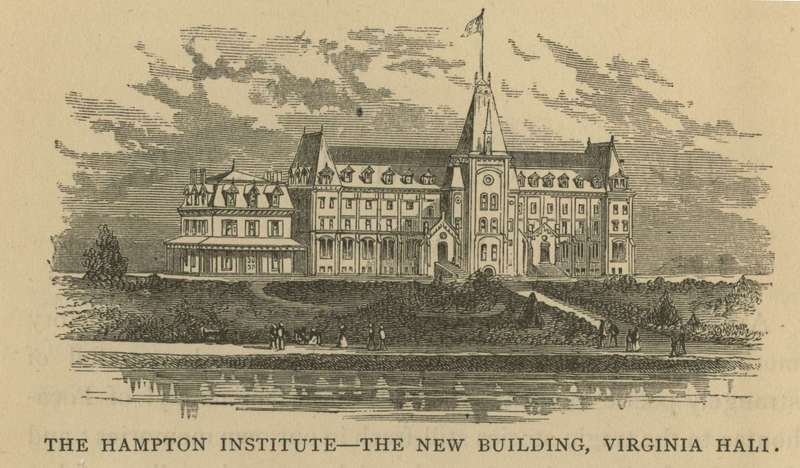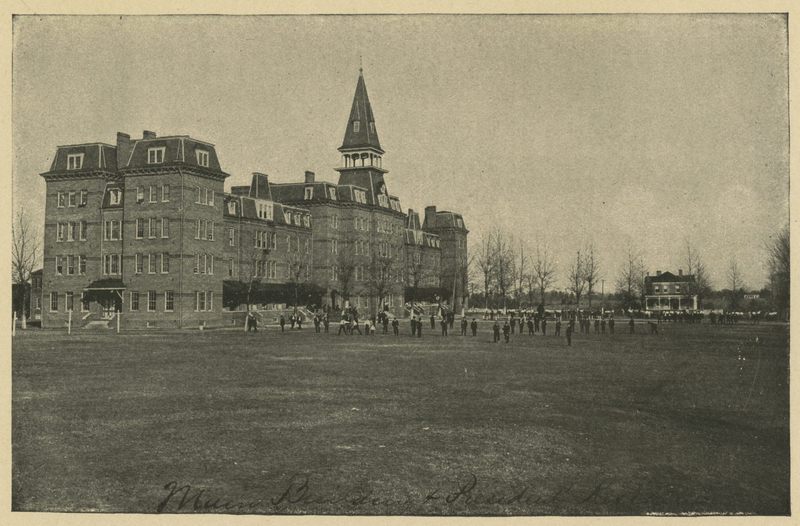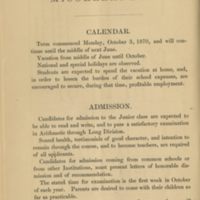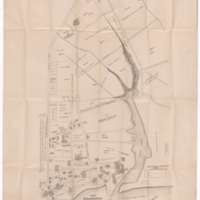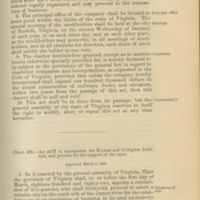Higher Education
Northern educators and philanthropists understood that, in addition to schools to teach basic literacy and skills to Virginia's freed children, adult freedpeople in Virginia needed professional training to serve their communities as clergymen and teachers.
Within six months after the end of the Civil War in 1865, representatives of the American Baptist Home Mission Society opened the Richmond Theological School for Freedmen, which held its first classes in the former slave jail of Richmond trader Robert Lumpkin, where enslaved men and women had been "lodged for safe keeping until they were disposed of at private or public sale. In this building, in the windows of which some of the iron bars remain until this day, students were invited to assemble for instruction in matters pertaining to the Christian ministry." It was the first institution of higher education for African Americans in Virginia. The General Assembly incorporated the college in 1876. It changed its name in 1899 to Virginia Union University following its unification with Wayland Seminary, in Washington, D.C. The university had a long affiliation with Hartshorn Memorial College, the first college for African American women in the state, founded in Richmond with a donation from Joseph C. Hartshorn, of Rhode Island, in 1883. They merged in 1932.
Hampton Normal and Agricultural Institute was the second college for African Americans in Virginia. Its campus was on the site in Hampton where a large number of people who escaped from slavery took refuge with the U.S. Army during the Civil War. Founded in 1868 by General Samuel Chapman Armstrong, an agent of the Freedmen's Bureau, it was the first coeducational institution in Virginia. It was initially supported by philanthropic and religious groups, and from 1878 until 1912, federal funding paid for a program for Native American students. During its first decades, Hampton Institute, as it was known, prepared young men and women for careers in teaching. Hampton graduates played prominent roles in African American communities throughout Virginia and many other states. Its most famous graduate was Booker T. Washington, the founding president of Tuskegee Institute, in Alabama, and the most prominent African American in the country early in the twentieth century. Hampton Institute changed its name to Hampton University in 1984.
In 1882, the Virginia General Assembly, which then included thirteen African American members, created the Virginia Normal and Collegiate Institute, the nation's first fully state-supported four-year institution of higher learning for African Americans. At its campus in Ettrick, near Petersburg, it was coeducational from the beginning and focused on training teachers for the state's public schools. The General Assembly changed the institution's name in 1902 to the Virginia Normal and Industrial Institute, in 1930 to Virginia State College for Negroes, in 1946 to Virginia State College, and in 1979 to Virginia State University.
